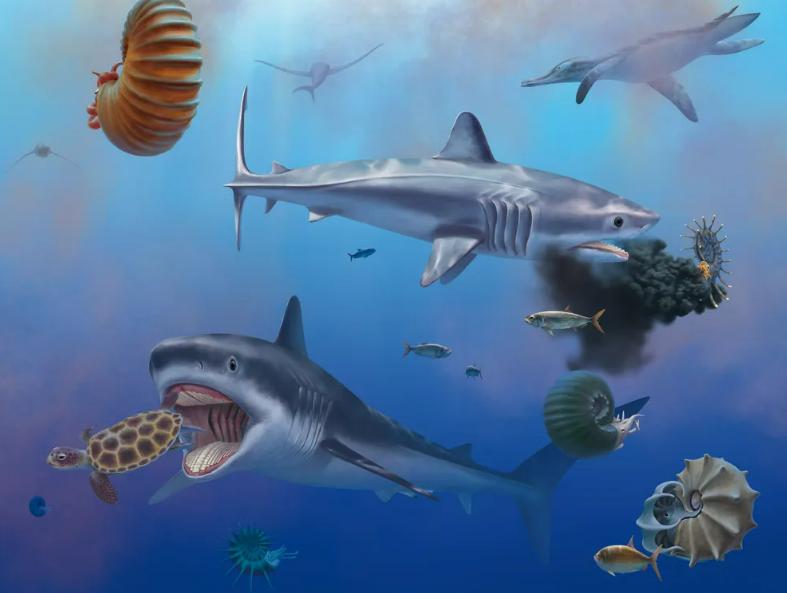In a recent scientific discovery that promises to unlock secrets of the past, paleontologists have finally pieced together the puzzle of the ancient shark genus Ptychodus. For years, fragments of teeth, cartilage, and vertebrae found across continents hinted at the existence of a formidable predator that once roamed the ancient seas. The geographic range of Ptychodus fossils, spanning the Americas, Asia, Europe, and Africa, showcased the global presence of these ancient predators, sparking curiosity among scientists.
Recently, a collection of remarkably complete fossil skeletons unearthed in limestone quarries in Nuevo León, Mexico, offered unprecedented insights into the world of Ptychodus. These nearly intact specimens, some reaching lengths of up to 33 feet, revealed that Ptychodus was not a sedentary bottom-dweller but a swift predator of the open waters. Their anatomy suggested a lifestyle of fast-paced hunting, preying upon hard-shelled turtles and ammonites, much like today’s great white sharks. The discovery was described as “really exciting” by lead author Romain Vullo of the University of Rennes, as it solved one of the most striking enigmas in vertebrate paleontology.
As a big apex predator, Ptychodus likely played a significant role in shaping the Late Cretaceous marine ecosystems. Their dietary preferences and hunting behavior would have influenced the structure of the ecosystem, regulating the populations of their prey and maintaining balance within the marine communities. Their extinction may have had ripple effects, altering predator-prey dynamics and leading to shifts in species abundance and distribution. The study of Ptychodus not only sheds light on the past but also serves as a reminder of the urgent need for conservation measures to protect modern shark species facing threats of extinction due to human activity.
This discovery places Ptychodus within the order of Lamniformes sharks, a lineage that includes several modern species like the great white, mako, and thresher sharks. These iconic species are under threat of extinction, with their populations declining due to various human activities. The study of Ptychodus serves as a poignant reminder that the choices we make today will impact the future of life on Earth. By unraveling the mysteries of the past and working towards safeguarding the future of modern shark species, we can ensure that these majestic creatures do not face the same fate as their ancient counterparts.
The newfound insights into Ptychodus also have implications for understanding Cretaceous ecosystems. The discovery of nearly intact fossils provided researchers with a clearer understanding of where Ptychodus sits in the shark family tree and its place in the marine ecosystems of the Late Cretaceous. These revelations are seen as the last jigsaw piece in putting together the puzzle of Cretaceous ecosystems, offering a deeper understanding of the dynamics that shaped these ancient environments. The study of Ptychodus not only enriches our knowledge of the past but also underscores the importance of conservation efforts to protect the biodiversity of our planet for future generations.













